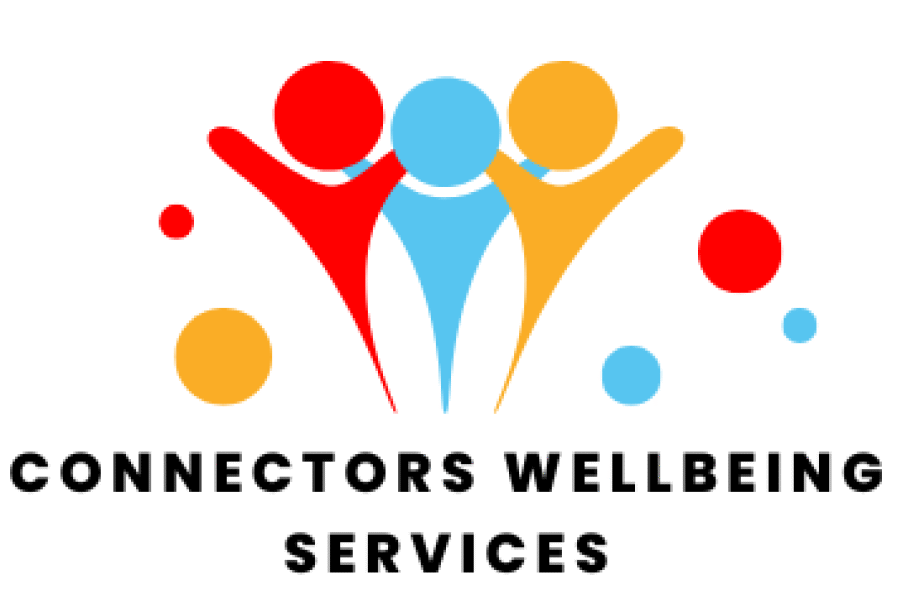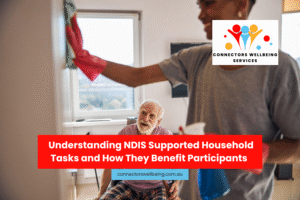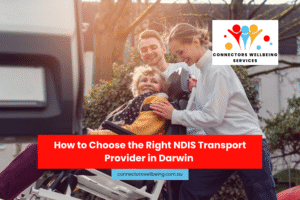What is NDIS Mental Health Support?
NDIS mental health support is defined as services and programs facilitated by the NDIS that strives to assist the participants to cope with mental health issues as well as enhance their daily functioning and social role. These interventions are client-focused, that is, they are specific and individualized to the needs, objectives, and situations of the participant.
Mental health care provided under the NDIS is not like clinical or hospital-based care. Whereas psychologists or psychiatrists treat mental health conditions in a clinical manner, NDIS mental health supports are geared towards practical strategies, daily living skills as well as community participation. This is aimed at assisting participants to be as independent and confident as possible.
Who Can Access NDIS Mental Health Support?
- Have a NDIS plan with a funding amount of capacity building or core supports.
- Possess a diagnosed disability which impacts daily life and involvement.
- Possess objectives concerning self-sufficiency, self-care or social affiliation.
This support can be useful to many individuals with mental issues such as anxiety, depression or psychosocial disabilities. Mental health services through NDIS are meant to supplement other medical or psychological services that participants of the program may have.
Types of NDIS Mental Health Supports
- Psychosocial Support Programs – assist the participants in dealing with stress, feelings and routine activities.
- Daily Living Skills Assistance- assist with cooking, cleaning, personal care, and budgeting to lessen stress and enhance independence.
- Community Participation – the programs in the social environment to attend groups, participate in recreational activities or be involved in the social life.
- Behaviour Support – to participants that require interventions to cope with problematic behaviour in a safe manner.
- Capacity Building Supports This is training, coaching, and skill-building to enhance confidence and resilience.
- Counselling and Peer Support – other plans involve finances towards social work or peer support groups.
Benefits of NDIS Mental Health Support
- Improved Wellbeing – guided assistance assists in lessening stress and enhancing general emotional wellbeing.
- Higher Independence – learning how to live independently enables the participants to gain control over their routines.
- Better Social Connections- doing community work helps to minimise isolation and enhances friendship.
- Confidence and Self-Esteem – it triggers confidence and motivation as one can accomplish small goals with help.
- Reduced Hospital or Crisis Interventions- practical supports will help to avoid the escalation of issues, and the participants will remain safe and well.
How to Access Mental Health Support Through NDIS
- Review Your NDIS Plan – Check your plan on how to finance it under core or capacity building supports which can be applied to mental health.
- Determine Your Objectives- Determine what you would like to accomplish, i.e., more independence, better coping, or more social involvement.
- Find a Provider – Choose a registered NDIS provider who offers mental health services. Providers like Connectors Well can help tailor supports to your needs.
- Use Your Funding – Book services under your plan funding either under plan-managed, self-managed or NDIA-managed funding.
- Monitor Progress- Track the way the supports are assisting you in meeting your goals and explaining to your NDIS planner about the changes made during reviews.
Tips for Maximising Your NDIS Mental Health Supports
- Be Clear About Your Goals – Share exactly what you want to achieve with your provider.
- Use a Combination of Supports – Mix practical daily living support with social participation programs for best results.
- Participate Frequently Frequent attendance in programs or sessions enables the acquisition of skills and confidence within a shorter period.
- Monitor Progress – Write down the positive or negative developments to make at review meetings of the plan.
- Ask Questions – In case you are not sure of funding or services, your NDIS planner or provider can advise you.
Conclusion
At Connectors Well, we provide tailored mental health support across Darwin and surrounding areas. Our programs focus on skill-building, social connection, and personal growth. If you or your loved one is looking for NDIS mental health support, reach out today. Together, we can help you achieve independence, wellbeing, and a brighter future.





